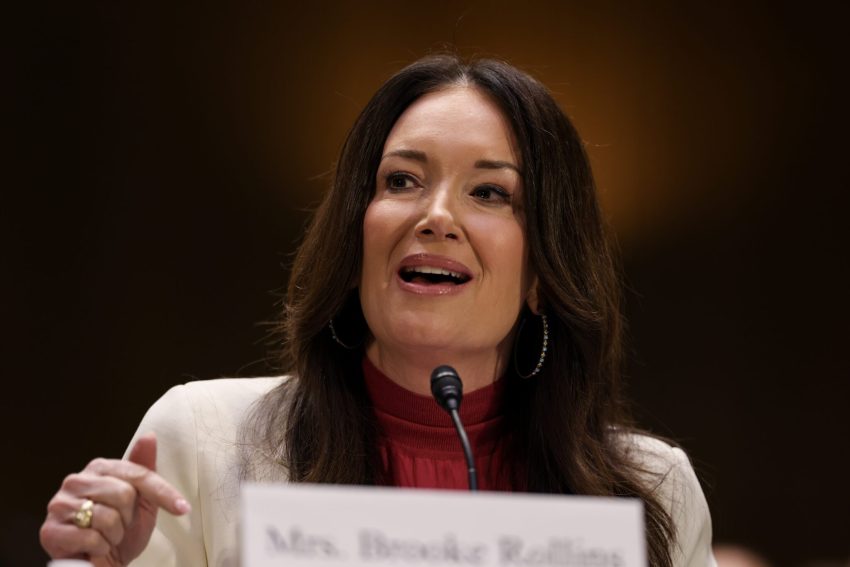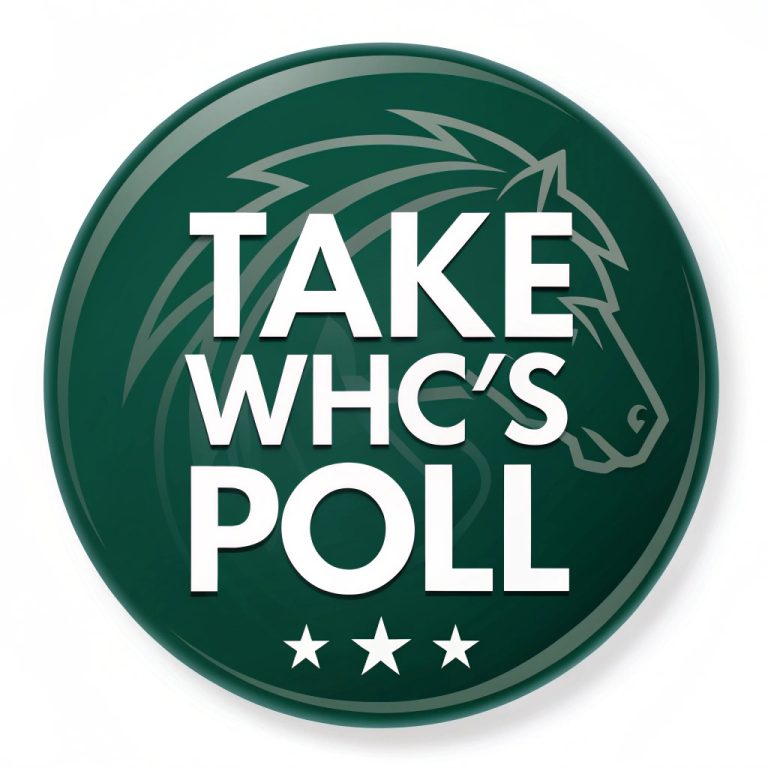Brooke Rollins Confirmed as U.S. Secretary of Agriculture Amid Challenges and Controversies
Written by: Tommy Williams
email:tommywhc@aol.com
931-492-2825
WHC Publisher-Williams Media Entertainment
WASHINGTON, D.C. — The U.S. Senate voted overwhelmingly on Thursday to confirm Brooke Rollins, a staunch ally of former President Donald Trump, as the nation’s 33rd Secretary of Agriculture. The 72-28 vote, which included support from 19 Democrats, marks a rare bipartisan consensus for a Trump cabinet nominee and positions Rollins to lead the U.S. Department of Agriculture (USDA) during a period of economic strain, trade tensions, and a widening bird flu crisis .
A Conservative Policy Veteran Takes the Helm
Rollins, a Texas native and former head of the Trump-aligned America First Policy Institute (AFPI), brings a mix of political loyalty and policy expertise to the role. A lawyer by training, she previously served as Trump’s domestic policy adviser and acting director of the White House Domestic Policy Council during his first term, where she oversaw agriculture policy 3910. Her resume also includes a 15-year tenure leading the Texas Public Policy Foundation (TPPF), a conservative think tank that historically criticized ethanol subsidies and farm aid—positions she distanced herself from during her confirmation hearings 89.
Rollins’s agricultural roots run deep: she grew up in Glen Rose, Texas, and was active in the Texas FFA Association. She later became the first female student body president at Texas A&M University, where she earned a degree in Agriculture Development 10. Supporters, including Senate Agriculture Committee Chairman John Boozman (R-Ark.), praised her as a “policy wonk with a farmer’s heart” who understands rural America’s struggles 1115.
Immediate Challenges: Bird Flu, Trade Wars, and Labor Shortages
Rollins steps into the role at a critical juncture for American agriculture:
- Bird Flu Outbreak: The USDA is grappling with a devastating avian influenza outbreak affecting over 23 million birds and 968 dairy cattle across 16 states. The crisis has driven egg prices to nearly 5perdozen,upfrom2.04 in 2023 1115. Rollins pledged to prioritize disease containment and collaborate with state agricultural commissioners to mitigate losses 211.
- Trade and Tariff Risks: With Trump renewing threats of tariffs on Mexico, Canada, and China—key markets for U.S. crops—Rollins faces pressure to shield farmers from retaliatory measures. During her confirmation hearing, she vowed to advocate for rural communities caught in trade crossfires, though Democrats like Sen. Amy Klobuchar (D-Minn.) questioned whether she would challenge Trump’s protectionist agenda 314.
- Labor Shortages: Over 40% of U.S. farmworkers are undocumented, and Trump’s plans for mass deportations risk exacerbating labor gaps in sectors like dairy and produce. Rollins endorsed the president’s immigration stance but pledged to reform the H-2A visa program to address workforce needs 914.
Policy Priorities and Controversies
Rollins outlined an ambitious agenda for her first 100 days, including:
- Disaster Aid Distribution: Accelerating $10 billion in congressionally approved relief for farmers hit by natural disasters and economic downturns 1115.
- USDA Modernization: Streamlining remote work policies and restructuring agency operations to align with Trump’s broader government efficiency goals 914.
- Nutrition Program Reforms: While supporting SNAP (food stamps) and school meal programs, Rollins echoed Republican calls for stricter work requirements and healthier food standards—a stance that drew skepticism from anti-hunger advocates 914.
Her confirmation hearing also revealed tensions over climate change. When pressed by Sen. Klobuchar, Rollins equivocated, stating, “The climate changes throughout the year, but the cause and solutions are not widely understood” 8. Environmental groups criticized this response as dismissive of science, though farm lobbyists applauded her focus on immediate economic concerns 811.
Bipartisan Support Amid Democratic Reservations
Despite reservations about her alignment with Trump’s divisive policies, Rollins secured unanimous approval from the Senate Agriculture Committee and support from prominent Democrats, including Sens. Cory Booker (D-N.J.) and Amy Klobuchar. Critics, however, warned that her loyalty to Trump’s agenda—such as freezing federal grants and slashing the workforce—could undermine USDA’s mission 81015.
Farm groups expressed cautious optimism. Zippy Duvall, president of the American Farm Bureau Federation, called Rollins a “champion” for rural America but urged swift action on labor and trade issues 211. Meanwhile, progressive activists condemned her ties to AFPI, which has advocated for deregulation and corporate-friendly policies 314.
A Vision for Rural Revival
In her post-confirmation remarks, Rollins emphasized her commitment to “revivifying rural America,” though she acknowledged the federal government’s limited role. “It will take an all-hands approach,” she said, promising partnerships with state governments and private stakeholders 1415. Her collaboration with Health Secretary Robert F. Kennedy Jr.—confirmed the same day—could also reshape school nutrition standards, targeting ultra-processed foods 215.
Looking Ahead
As Rollins assumes leadership of the 100,000-employee agency, her ability to balance Trump’s ideological priorities with the pragmatic needs of farmers will be closely watched. With a farm bill reauthorization looming and rural discontent simmering, her tenure may well determine the political landscape of American agriculture for years to come.
For further details, visit USDA News or review Senate voting records at Ballotpedia 1012.
This article synthesizes reporting from The New York Times, AP News, The Texas Tribune, and other sources cited throughout.










